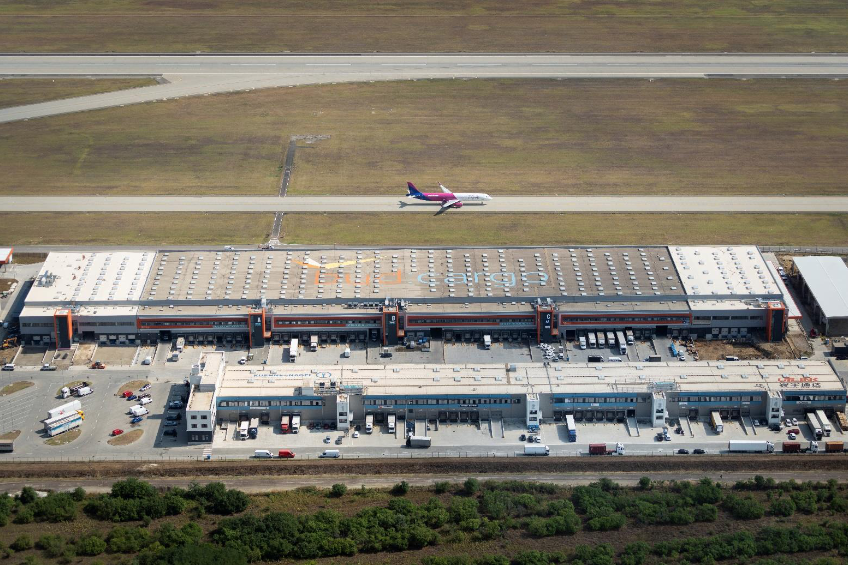Budapest Airport’s cargo success story
| Company | Budapest Ferenc Liszt International Airport |
|---|---|
| Date | 14.12.2023 |

BUD Cargo City is central to Budapest Airport’s cargo success story.
As Budapest Airport approaches the end of another year of progression, the strength of its cargo development is once again resounding. Having seen 112% growth in volume from 2015 to last year, 2023 continues to produce an increase in cargo traffic and new records set. Handling 22,206 tons in November alone, a robust 25.9% rise when compared to the same month last year, Budapest is experiencing its strongest quarter in its cargo history.
Air cargo volumes have been growing strongly at Budapest Airport since 2021, each year bringing unprecedented records as airlines continue to offer new cargo capacities at the Hungarian gateway. As the airport positions itself as a major air cargo gateway in Central and Eastern Europe, the consistent growth is largely due to the boost by Asian cargo flows, particularly connecting to China, while additional forwarders are using Budapest as a regional consolidation gateway, for inbound and outbound cargo flows.
The stability of integrators such as DHL Express, FedEx, and UPS is matched by the consistent performance of regular cargo operations by Qatar Airways Cargo, Turkish Cargo, Cargolux, and Korean Air, joined by Sichuan Airlines’ full freighter operations in April. Combined with the booming charter cargo segment and ad-hoc capacities, which witnessed escalation this year, the airport is ensuring the demand is met.
 As a cargo-friendly hub, Budapest Airport has focused intensely on developing its cargo infrastructure in the last few years. From the outset, the BUD Cargo City was the catalyst, handed over in 2020, enabling the airport to provide a world-class cargo handling environment with efficient facilities, and further developments are in progress. In order to efficiently handle aircraft with larger capacity, the Hungarian gateway initiated an expansion which doubled the dedicated BUD Cargo City apron. Completed in August, the transformation now enables the airport to handle up to four Code F (B747F) aircraft with nose loading options, simultaneously. The next steps include an additional 10,000m² handling warehouse extension, with offices and other supporting infrastructure, which will add to the existing cargo handling capabilities this month.
As a cargo-friendly hub, Budapest Airport has focused intensely on developing its cargo infrastructure in the last few years. From the outset, the BUD Cargo City was the catalyst, handed over in 2020, enabling the airport to provide a world-class cargo handling environment with efficient facilities, and further developments are in progress. In order to efficiently handle aircraft with larger capacity, the Hungarian gateway initiated an expansion which doubled the dedicated BUD Cargo City apron. Completed in August, the transformation now enables the airport to handle up to four Code F (B747F) aircraft with nose loading options, simultaneously. The next steps include an additional 10,000m² handling warehouse extension, with offices and other supporting infrastructure, which will add to the existing cargo handling capabilities this month.
Completing the extension was an important milestone in the overall cargo expansion plan at Budapest, which sees the airport’s annual cargo capacity grow to 300,000 tons per year from January 2024. As Cargo City Phase 1 development plans have now been completed, the gateway’s preparations for the second phase of the BUD Cargo City logistics complex are already planned. Seeing several cargo projects on the market and high interest in the cargo service options provided at Budapest Airport, the need to ensure infrastructure is in line with demand is paramount.
Besides general cargo, the e-commerce business is booming at Budapest and the airport works hard to provide an operational environment to support this. With exceptional logistic service providers and the implementation of a high-level digitalized platform for customs clearance, the airport enables swift processing times for the large number of shipments, ensuring elevated customs control levels.
René Droese, Chief Development Officer, Budapest Airport, commented: “Air cargo has strategic importance at BUD. It is great to see that the development work and investments in cargo that have been carried out in the last years are in symbiosis with the requirement of our cargo partners, their success is our success and vice versa. BUD will do its best to continue our cargo success story in the future.”

